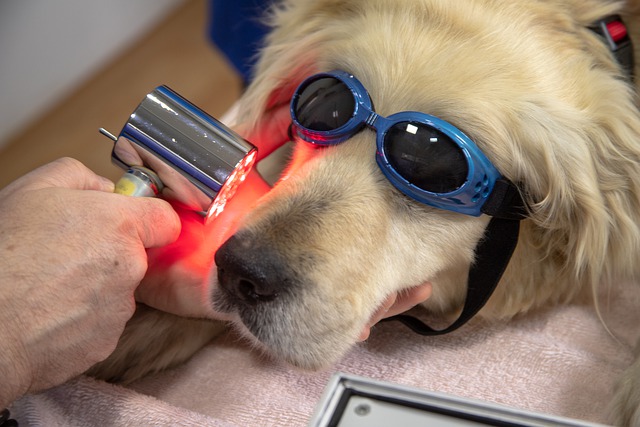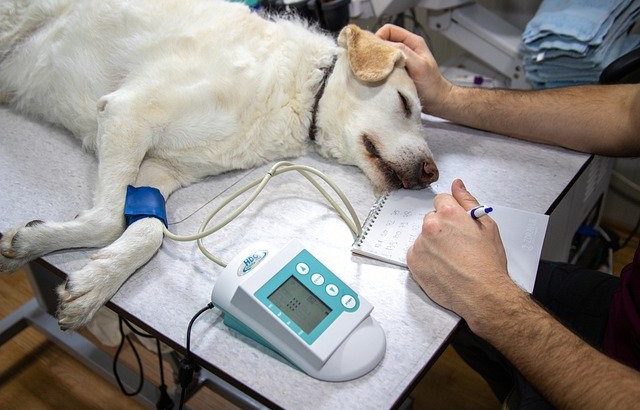The Pros and Cons of a Veterinary Internship
After earning a Doctorate in Veterinary Medicine (DVM), you might be eager to secure a job at a local veterinary clinic. An alternative route, however, is to do an internship. Not to be confused with a residency, a veterinary internship is an optional service education program that immediately follows a DVM. It typically lasts one year, during which you’ll work alongside licensed veterinarians and veterinary professionals at a clinic. What are the pros and cons of undertaking a veterinary internship exactly?
Pro: Extended Education in a Real-World Setting
A veterinary internship allows you to take advantage of extended education in a practical, real-world setting. While a DMV consists of a lengthy four-year degree program, there’s only so much you learn about veterinary medicine from textbooks and other forms of curriculum. Veterinary medicine requires many skills, some of which are best learned in an actual clinic. A veterinary internship will help you develop these skills by working closely with licensed veterinarians. You’ll receive hands-on training in a real-world setting that you can apply to your veterinary career after completing the internship.
Pro: Specialization Available
There are specialized veterinary internships available. Offered by members of The American Board of Veterinary Specialties (ABVS), they focus on a particular field of veterinary medicine. If you’re hoping to work as a veterinary specialist, a specialized internship can prove fruitful because you’ll learn the specific skills needed for your desired field of specialization.
Some of the different specialized veterinary internships available include the following:
- Canine
- Feline
- Avian
- Reptile
- Equine
- Animal surgery
- Clinical pathology
- Animal cardiology
- Animal oncology
- Animal virology
- Animal immunology
Pro: You’ll Get Paid
As a veterinary intern, you won’t be volunteering. Rather, you’ll get paid for the time and work you invest into it. Many people assume that interns aren’t paid, but this isn’t the case — at least not for veterinary interns. The clinic for which you work as an intern will pay you either wages or a salary. In this regard, a veterinary internship is a form of paid education.
Pro: Easier to Find a Job
You’ll have an easier time finding a job as a veterinarian if you complete a one-year internship program beforehand. When recruiting veterinarians, clinic owners will look for training and experience. If you’re fresh out of DVM school, owners may feel reluctant to hire you. Completing an internship program shows clinic owners that you’ve received hands-on training, so they’ll feel more confident giving you the job. It will distinguish you from other applicants to make finding a job a little easier.

Con: Lower Earning Potential
While you’ll get paid as a veterinary intern, you won’t earn as much as you would while working as a licensed veterinarian. The Association of American Veterinary Medical Colleges (AAVMC) explains that the value of a veterinary internship comes from the education and experience interns receive; it doesn’t come from financial compensation. Veterinarian interns typically earn a fraction of what licensed veterinarians earn. If you’re hoping to earn a high salary, you may want to skip an internship.
Con: Long Hours
You can expect to work long hours as a veterinary intern. According to a survey conducted by the American Veterinary Medical Association (AVMA), our four in five veterinary interns work longer hours than their veterinary counterparts who went straight into the field of veterinary medicine after earning their DVM. You’ll have little or no freedom over setting your work schedule as an intern. Instead, you’ll have to work when needed by the clinic. The end result is long hours that can prove tiresome for many veterinary interns.
Con: Emergency Work
Another potential disadvantage of veterinary internships is the large amount of emergency work that you may be asked to perform. Since veterinary interns have already earned a DVM, clinics often request them to perform emergency work on animals. You may be asked to treat broken bones, administer antiviral medication, perform surgery and more. Emergency work such as this comes with the territory when working in the field of veterinary medicine. Nonetheless, the large amount of emergency work that veterinary interns are asked to perform can lead to increased stress.
The Bottom Line on Veterinary Internships
A veterinary internship is a form of extended education that allows you to gain experience while working with licensed veterinarians and other veterinary professionals. While you aren’t required to complete an internship to become a licensed veterinarian, it offers several benefits. As a veterinary internship, you’ll gain experience in a real-world setting, such as a clinic, while earning income in the process. On the other hand, you’ll get paid less as a veterinary internship than you would as a licensed veterinarian. An internship will also require you to work long hours and perform a lot of emergency work. By weighing its pros and cons, you can determine whether a veterinary internship is right for you.

